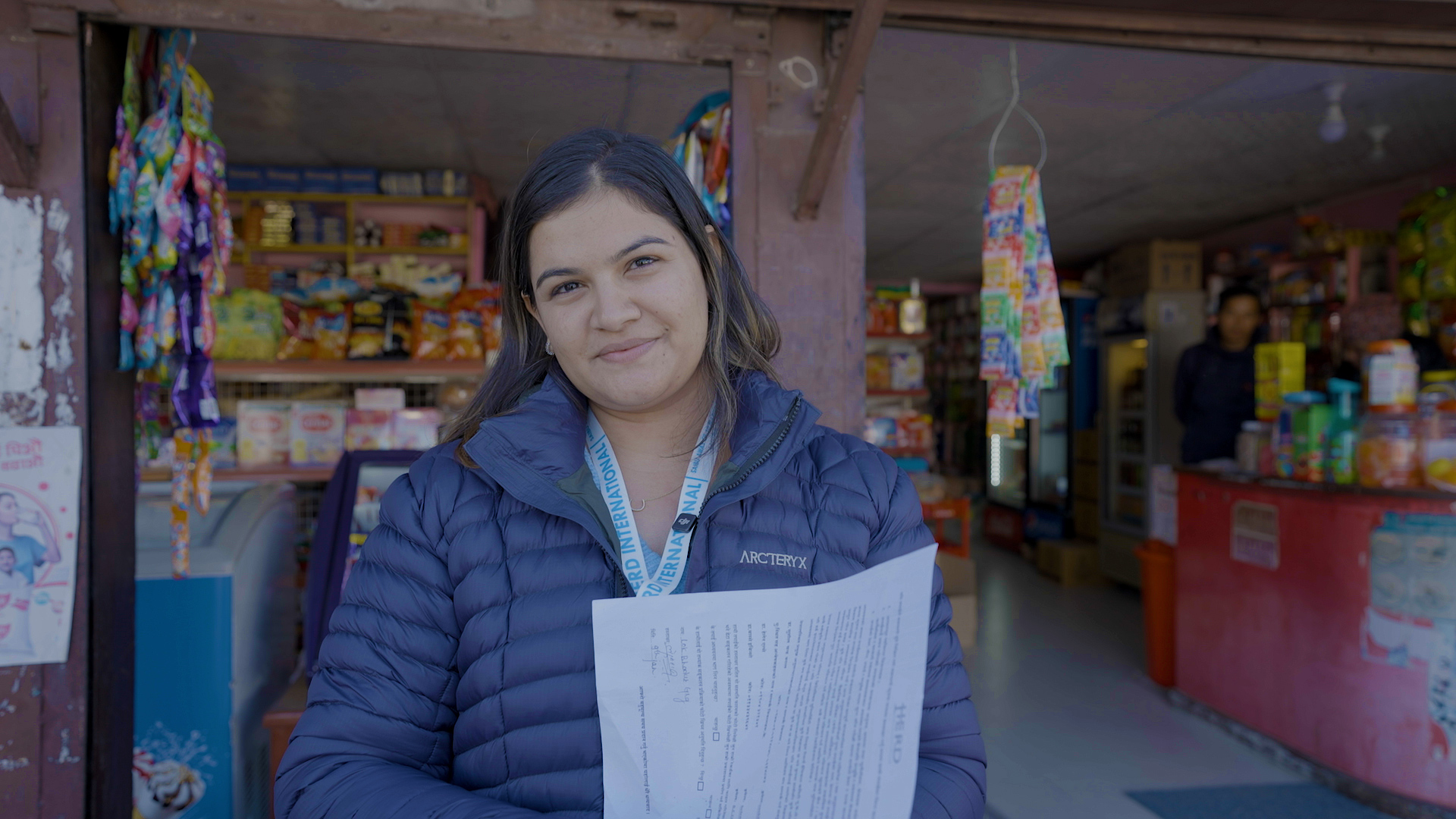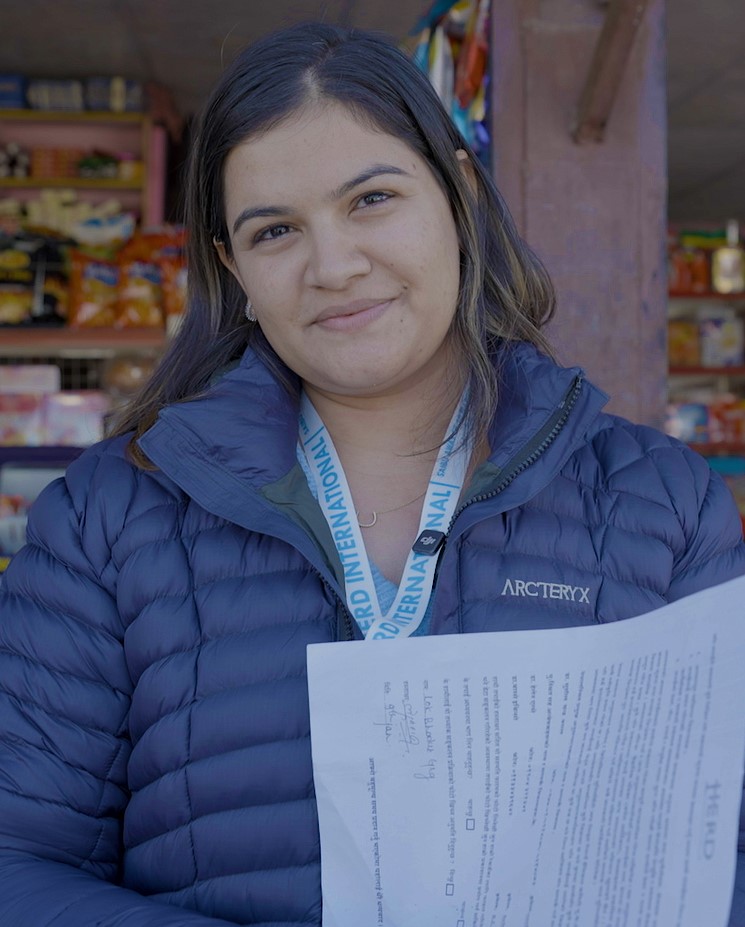Introduction
Namaste! My name is Rojina Adhikari. I am from Pokhara-10, Rambazar. Currently, I am working for the CHORUS project at HERD International. This project is being implemented in Pokhara, specifically in the former Lekhnath Municipality. Our work is currently focused in Wards 27 to 32. In this project, we aim to understand the linkage between private pharmacies and primary healthcare providers in improving diabetes and hypertension management. This study is being conducted in collaboration between HERD International and Pokhara Metropolitan City.
What am I doing here?
I have been working as a Field Researcher for a month on this project. Prior to this, I was also involved in the baseline survey of the same project. Now, I am working on the midline survey. With my previous experience from the baseline survey, I am excited about the new learning opportunities this midline survey will bring. Every day, I approach my work with renewed enthusiasm, eager to gain new experiences.
Now, we are collecting data in Ward 29, Bhandardik. In this ward we have enrolled one pharmacy and one Urban Health Centre. We are engaging with participants who visit these facilities for NCD (Non-Communicable Disease) services in our study. Just before coming to Ward 29, I had visited Milan Chowk, Ward 30, where I interviewed a 65-year-old participant with high blood pressure. After measuring his blood pressure and understanding his health condition, I came to next site here in in Ward 29.
What process do I follow?
Initially, we make a phone call to the participants to check their availability, which is a major consideration before visiting them. Once confirmed, we proceed to understand their health condition, whether they have hypertension or diabetes. After this, we take their informed consent, including permission to take their photographs if necessary. We then measure their height, weight, and blood pressure three times to ensure accuracy. We also inquire about their healthcare-seeking behavior, including where they receive treatment, the quality of services, and whether they follow medical advice.
What are my learnings?
When I worked on the baseline survey, I had just graduated and was new to field research. This was my first job, and although I had some prior exposure to fieldwork, I had never been involved in a month-long project before. At that time, I was very excited and eager to learn.
Now, working in the same area for the midline survey, I can compare the participants’ health conditions from the baseline phase to their current status after the intervention. This allows me to assess whether they have adopted healthier practices and if they have genuinely benefited from pharmacy services. This aspect excites me even more because I get to observe real-life health improvements. Every day presents new learning opportunities, whether through meeting new faces or revisiting familiar ones to track their progress. As a researcher and a citizen of this country, I often question my role in improving the health sector and how I can contribute to better health outcomes in the future.
What are the challenges?
I want to share a challenge I faced. During data collection yesterday, a female participant refused to share personal information, including whether he consumed alcohol or cigarettes. She questioned why we needed such details and was hesitant to participate. So, rapport building was the challenge. Now a days many people have measurement equipment. So they are reluctant to provide data. So sensitizing about the purpose is a major challenge.
How do I solve these challenges?
In such situations, we need to convince participants about why are approaching them. and how their contributions can help improve future healthcare services. We explained to her that his responses would be used for health improvement programs, and eventually, we also collected data. Moreover, when we informed her that we would return for follow-up in 15 days, she willingly accepted and even encouraged us to visit again. Overcoming this challenge felt like a great achievement for us as field researchers.
What is my takeaway?
As a field researcher, the most important learning experience for me is understanding the health status of different communities. The community is at the core of our work, and we must explore the disparities between educated and uneducated individuals regarding their health-seeking behavior. Additionally, this role has helped me develop coordination, collaboration, communication, and leadership skills. It has also made me reflect on how I can contribute to the healthcare sector in the future.
What is my career goal?
I am still in my learning phase as I have recently graduated. However, this opportunity to work directly with the community has been invaluable. If I ever take on a higher position in the future, I now understand how crucial field-level experience is in shaping policies and programs. Currently, 71% of deaths in Nepal are due to NCDs. With lifestyle changes, poor dietary habits, and rising obesity rates, the risk of NCDs is increasing. Although I have not yet decided which specific area I want to specialize in, I am now inclined towards nutrition and dietary research. Through continuous learning and field experience, I hope to contribute towards improving nutrition and overall health outcomes in Nepal.











Comments (0)
No comments found.